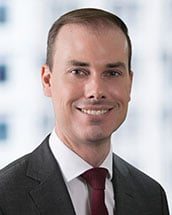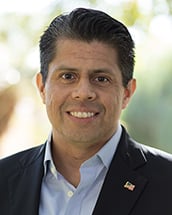The Supreme Court of the United States has addressed a contentious split among federal circuit courts of appeals on the definition of “autodialer” under the Telephone Consumer Protection Act (TCPA) with a decision that should greatly reduce the amount of TCPA litigation in the US.
The TCPA prohibits any person from placing phone calls (including text messages) to a wireless number using an “autodialer,” among other things, without the recipient’s prior express consent (or, for marketing calls, prior express written consent), unless the call is made for an emergency purpose. TCPA allows consumers to bring a private cause of action against violators, and recover up to $1,500 per call for willful or knowing violations, among other relief, with no cap on damages, on top of potential federal enforcement actions by the Federal Communications Commission or state attorneys general.
Courts and businesses have disagreed over what constitutes an “autodialer” for TCPA purposes, and, for some time now, this confusion has led to class action litigation and settlements worth millions affecting companies of every size in every industry. In 2018, for example, the Ninth Circuit Court of Appeals unanimously held that an autodialer includes equipment that (1) either has the capacity to store numbers to be called, or to produce numbers to be called using a random or sequential number generator, and (2) has the capacity to dial those numbers.
Relying on such a broad interpretation of autodialer, however, meant that any device capable of storing or dialing phone numbers could be considered an autodialer. For example, if a retail agent manually dialed a consumer’s number using a mobile phone to alert them your store was having a sale, that device arguably would be considered an autodialer, since mobile phones theoretically have the capacity to both store and dial numbers. And if the business did not obtain sufficient consent from the consumer before that call was made, then these calls would violate the TCPA.
The Supreme Court’s interpretation, however, narrowly defined autodialer to only a device with the capacity either to store a telephone number using a random or sequential generator, or to produce a telephone number using a random or sequential number generator. Notably, the Court stated:
Expanding the definition of an autodialer to encompass any equipment that merely stores and dials telephone numbers would take a chainsaw to these nuanced problems when Congress meant to use a scalpel. [Plaintiff]’s interpretation of an autodialer would capture virtually all modern cell phones, which have the capacity to “store . . . telephone numbers to be called” and “dial such numbers.”
What Does This Decision Mean for Businesses in the US?
There are a few important takeaways from the Court’s recent opinion.
- A device that can store and dial telephone numbers—such as a cell phone or a predictive dialer—but that does not use a random or sequential number generator, is not an autodialer, as the term is defined in TCPA.
- Companies not using a random or sequential number generator to store or produce numbers may no longer need prior express consent when using automated systems that store and dial (or message) phone numbers, as long as they don’t violate the separate prohibition on the use of an artificial or prerecorded voice (and the prohibition on fax advertising).
- Since most businesses generally use automated technologies to make phone calls or send text messages using pre-established lists of phone numbers ̶ rather than randomly or sequentially generating them ̶ the Court’s opinion in Duguid is likely to result in dismissal of many pending TCPA cases, and make it easier to engage in commercial and other promotional activities.
- Companies should still generally continue to obtain consent where practicable and follow other best practices when calling or sending text messages to consumers.
If you have any questions about this or any other privacy law developments, please reach out to one of the Contact Partners listed below.







